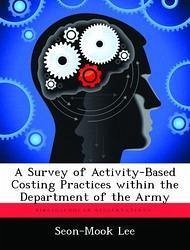Activity-Based Costing (ABC) does not appear to have been as readily accepted within the Department of the Army as within private industry (Kehoe et al., 1995). Barely able to accomplish their missions at current resource levels, military resource managers know historically that identified efficiencies and savings often are translated into self inflicted budget and manpower cuts. Yet, it is almost universally accepted that the benefits of using Activity-Based Costing are real and obtainable, but not yet worth the effort required with the perceived risk being taken. Current conventional wisdom is for Army Resource Managers to wait and see what benefits and fates come to those who pioneer ABC. The US Army Cost and Economic Analysis Center (CEAC) had been charged with the role of establishing policy for ABC within the Army. Wanting to base policy on successful applications, their first task is to define Army ABC, and then to find such initiatives from which to draw from. The purpose of this thesis is to find Activity-Based Costing practices within the US Army, and then to use them to discover the major dimensions of ABC in the Army environment. This research found that the home of Activity-Based Costing is in the Army Major Commands and their subcommands. Within these commands there is much interest in ABC, but efforts are stymied by lack of policy and widespread knowledge of ABC principles. Training is perceived not as individual, but as an organizational need. Base Operations was identified as the area most suitable for ABC, while combat units the least. Overall, ABC is generally considered to be a positive tool which can be employed to help leadership better manage their operations and resources.
Hinweis: Dieser Artikel kann nur an eine deutsche Lieferadresse ausgeliefert werden.
Hinweis: Dieser Artikel kann nur an eine deutsche Lieferadresse ausgeliefert werden.








